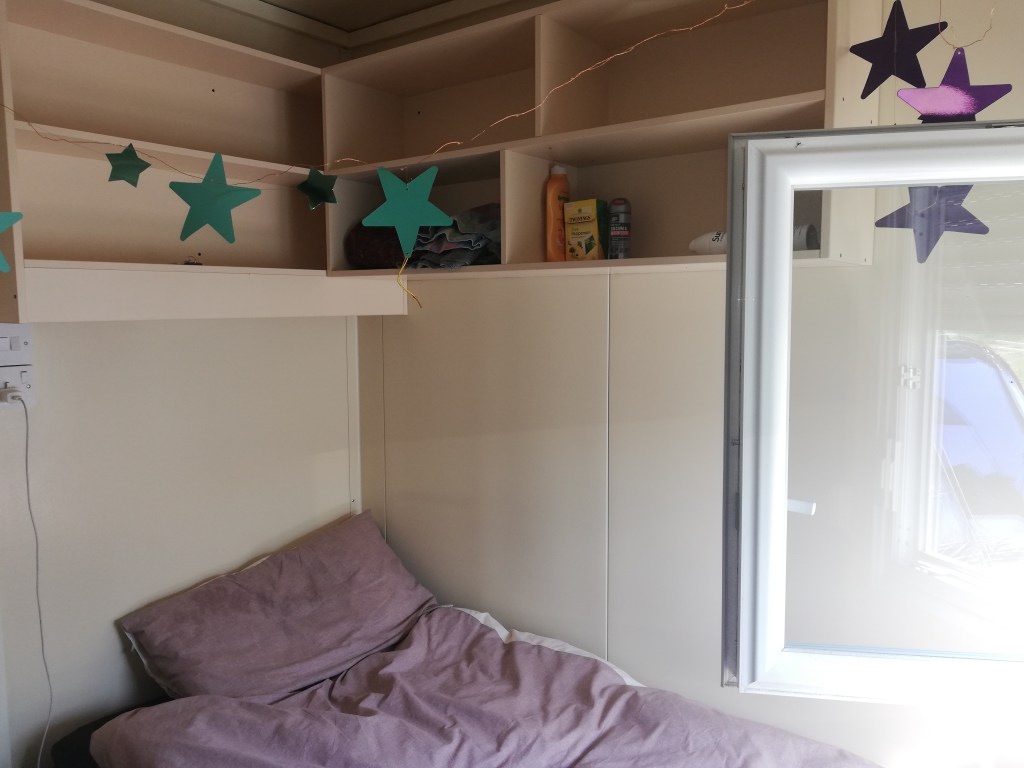Picture this: I’m on a train from Glastonbury to Oxford. Having been away for a few months, I’m finally heading home. I have no contract on a house – no roof over my head to return to – though, somehow, things don’t seem daunting. I’m heading home.
Isn’t it strange how a place can feel like home, even when you’re not necessarily returning to a bed in a room with material possessions? A few weeks ago, I was sitting on that train with a bursting-at-the-seams suitcase and a backpack twice the size of me, knowing that I’d spend the next few weeks on the floors and sofas of my friends. Even though the concept of being without a physical home was, at times, terrifying, I was so ready to be back in the city I love, surrounded by friends that feel like family.
It’s safe to say, I’ve been thinking a lot about my own concept of ‘home’ recently.
I suppose, for the last few years, physical ‘homes’ have always felt quite temporary to me. I mean, I lived in a tent for a little while – one of my favourite homes so far – but I always knew that it couldn’t last forever. It was a great few months, whilst the weather was good and our jobs permitted us to travel, but then it ended. After a rocky transitioning period of maybe-living-in-a-caravan and maybe-ending-up-sleeping-above-a-pub-in-Witney, we finally found our little studio flat. Even then, though, Beth and I shared such a small space, and I stayed on a pull-out bed on the floor; that home, too, felt temporary.
Maybe that’s how physical homes always feel, though? I’ve always been a little jealous of friends that still have parents that live in their childhood homes, because that idea feels a little more solid to me. A little more permanent. I had one main childhood home, but from the age of fourteen, we moved house a bit – always in the same village, but still different houses. When I moved to university, my family grew with my mum’s new partner and his daughter, and they rented a few different places before buying the house they now live in. Sometimes, I’d go home for Christmas to a house that I hadn’t even seen before.
Yet still, when I say I’m going back to see my family, even though I’ve only been to their new house a handful of times, I say I’m going home. Because home is not a physical place for me. It never has been.
If I’m heading back to the North to see my family, I’ll always be going home. I have connections to every village neighboring the one where my family now live: school days in Chorley, sixth form and nights out in Wigan, day trips to Manchester, iced coffee on park benches in Bolton… When I head back to Bath – the city that I lived in for four-and-a-bit years – I say I’m going home. Of course I am, because there are still people I love there. Maybe if I go back to Glastonbury next festival season, that will feel like going home, too – because of the people I met and the connections I made there.

Edinburgh is a city I’ve always been to alone; a city where I finished my first book and found so much of myself in the cobbled stone streets and teetering stacks of well-read books. It will always feel like home, maybe not because of the friends I made there, but because of the characters I created, the scenes I painted, and the conversations I wrote whilst travelling on my own.
Maybe I’m fortunate enough to have left pieces of my heart in cities all over the world.
So, here I am. Back in Oxford. I’m home. I’ve been sofa surfing with some wonderful friends for a few weeks, and I’ve finally found my own flat. It’s a one bedroom apartment in a building due to be demolished (not in the near future, don’t worry), so I’ll be a property guardian, which essentially means the rent is cheap and they can give me a month’s notice -as can I with them. It also means I have to commit to 16 hours of volunteering a month, something I’ve been wanting to do for a while anyway, and I can decorate however I like.
It’ll be the first time I’ve ever lived alone, and the first time I’ll have the freedom to paint and decorate and furnish my own place. I can’t invest too much time or money into it, because I could be given my months notice at any time, but that doesn’t mean I can’t make it my own. It will be temporary, like all of my other homes so far, but that doesn’t mean I can’t enjoy the time I have in it. I can make it cosy and unique and a place where I can relax and write and grab a few hours of peace at the end of a long day.
I’m slowly learning that just because things are temporary, it doesn’t mean you can’t enjoy them.

If I’m only in this flat for a few months, that’s fine. It’s impermanent, but still special. Time will pass and things will change and I will still have a home. I will still always have a home, because I don’t just have one.
My homes are in the company of those I love, scattered across cities where I lived and loved and left and came back.
Home is where the heart is – and my heart is, truly, all over the place.






